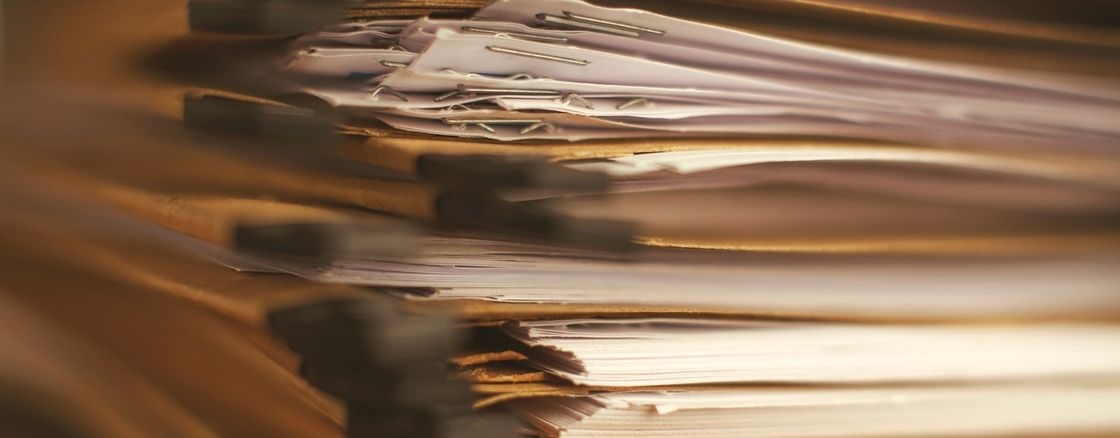Preparation is Key: Your Ultimate Checklist of Mortgage Application Documents
Written by:
Ashley Altus
Ashley Altus
Certified Financial Counselor
Ashley Altus is a writer and certified financial counselor through the National Association of Certified Credit Counselors.
See full bio
Fact Checked by:
Mike Tassone
Mike is a Co-Founder and Chief Operating Officer of Own Up. He has expertise in all areas of residential lending, having led operations for a top 40 lender in the United States.
See full bio

If you’re applying for a home loan, gather your documents and prepare to confess your financial life to your mortgage lender. While it may seem like a hassle, organizing your documents ahead of applying for a loan can help speed up the mortgage process.
What Documents Do You Need for a Loan Estimate?
One of the first steps of the mortgage process is to submit personal and financial information to a variety of lenders in order to obtain a rate quote and formal Loan Estimate. While it’s not a requirement to fill out copious amounts of paperwork during the pre-approval process, by doing so, a lender can provide you with a more accurate Loan Estimate.
With a Loan Estimate, borrowers can find out the amount of money a lender will allow them to borrow and the interest rate they can expect to pay. According to the Consumer Financial Protection Bureau, a lender is required to provide you a Loan Estimate once you’ve provided them with the following information during the application process:
- Your name
- Your income
- Your Social Security number
- The address of the home you’re looking to buy (or refinance)
- An estimate of the home’s value
- The amount of money you want to borrow.
What Documents Do You Need to Fill Out a Mortgage Application?
The mortgage application process is more robust than the pre-approval process. After comparing Loan Estimates from several lenders, you’ll choose one and fill out their loan application. The lender will ask for additional documentation to further verify the information you gave them during the pre-approval process. Your income, assets, debts, and credit history are some of the major components of the loan application process.
Income Verification
Can you afford to pay back your mortgage loan? Lenders favor borrowers with job stability and steady sources of income. For income verification, mortgage lenders ask to review the following types of documents:
W-2 Forms
Whether you filed your taxes electronically or via snail mail, collect your W-2 forms from the past two years so lenders can view your total income before and after taxes.
Pay Stubs
To ensure your finances have stayed the same from last year’s federal tax returns, your most recent pay stubs can provide proof of income for a mortgage loan. If you don't have a pay stub from an employer because you’re retired or self-employed, lenders will have other ways to verify you have the funds to pay for a mortgage. Typically a lender will want to see paystubs from the most recent 30 day period.
Income Tax Returns
In addition to W-2 forms, borrowers also provide lenders with their tax returns from the last two years for a comprehensive look at your finances.
Assets
During the mortgage application process, lenders will look at your entire financial picture. Your assets – such as cash or any other holdings or possessions that could be quickly liquified, will help lenders determine if you have the savings and investments to cover several months of mortgage payments in the event of a financial emergency. Lenders will also use your asset statements to assure that you have sufficient liquid funds for your down payment, closing costs, and escrow items (prepaid taxes and insurance).
Bank Statements
Your checking and savings accounts offer a glimpse of your financial health. Lenders want to feel comfortable that your current account balance isn’t a blip and your accounts won’t be drained after shelling out the cash for a down payment, closing costs, and other fees associated with the mortgage process. Lenders also want to make sure that you don’t have payments for any undisclosed debts coming out of your bank account on a regular basis.
Investment Accounts
Withdrawing money from an individual retirement account (IRA) or brokerage account is one way borrowers can fund a down payment. If you’re using money from an investment account such as the ones we mentioned, lenders will want to see the history of those accounts, as well.
Debts
As a mortgage is a type of debt, lenders want to know about types of debt you may already have. Common monthly debt payments for obligations, such as student loans and auto loans, all factor into your debt-to-income (DTI) ratio. Other obligations, such as child support and alimony also count against your DTI.
Credit History
Lenders want to see that you’re a strong borrower. Basically, they want to know if you’ve consistently paid back your debt obligations on time without any hiccups. Using your Social Security number, some mortgage lenders will conduct a hard credit inquiry during the pre-approval and loan application process to review your credit history. Here are two items they will typically review when they run a credit check on you.
Credit Score
Lenders may use a FICO credit score to determine your creditworthiness. For a conventional mortgage, lenders will look for a minimum credit score of 620, according to Experian, but this will vary based on each individual lender. Jumbo loans and government-backed loans will have different credit score minimums.
Credit Report
A credit report will show lenders an inclusive look at your credit history. Derogatory marks, such as late or missed payments and accounts that are in collections, will carry weight when determining a borrower’s loan terms. The individual tradelines reported on your credit report will also enable a lender to calculate your monthly debt-to-income ratio.
Additional Documents
Depending on your financial situation, lenders may need to see other documents during the loan application process.
Letter of Explanation
Maybe you’ve had some unique financial challenges. A letter of explanation can be used in the underwriting process to help shed some light on your financial situation. Whether you don’t have rental payment history – maybe because you’ve been living for free with a parent or someone else – or you have had to file for bankruptcy, a letter of explanation can help during the mortgage application process.
Gift Letters
If you’re going to use money that was gifted to you to cover a down payment, the lender will want to confirm that you’re not expected to pay back the money. A lender could ask for bank statements from the person who gifted you the funds to trace the source. Your gifter may also need to sign a form stating the money is a gift and you aren’t expected to pay it back.
ID
To prove you are who you say you are, lenders will ask for your ID, such as a driver’s license during the pre-approval and loan approval process.
The Bottom Line
As you can see, there are quite a few documents needed to apply for a mortgage. Use this list as preparation for when you’re applying for a Loan Estimate, but know that some lenders may require other documentation too. While it may seem overwhelming right now, the good news is that your hard work will pay off once you’re in your dream home.


